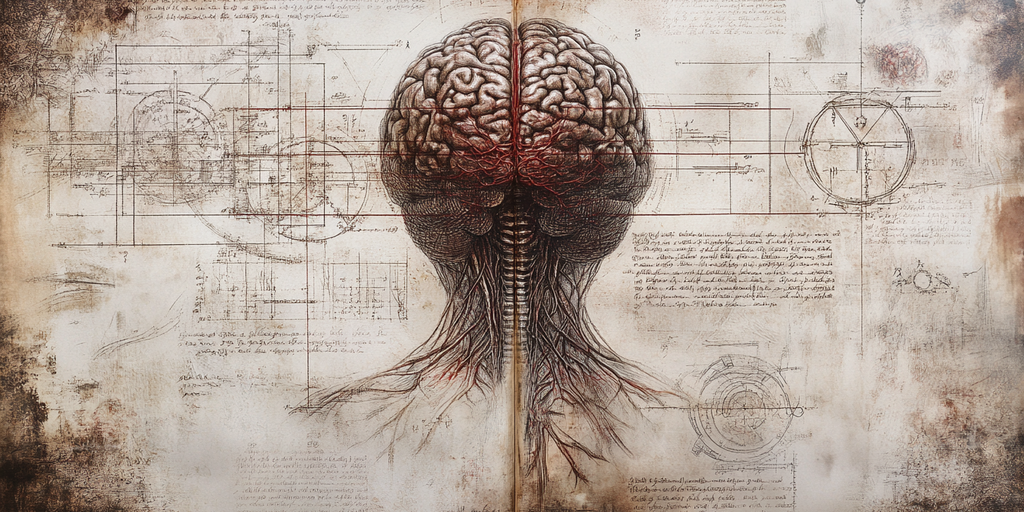Chinese researchers have reported initial results from an experimental surgical procedure they say aims to address Alzheimer’s disease through manipulating the brain’s waste clearance systems.
The findings, published in General Psychiatry, detail outcomes from what the team describes as a “cervical shunting” operation performed on a patient with Alzheimer who was able to achieve what the researchers describe as “promising” results.
Alzheimer’s disease progressively damages brain cells, primarily affecting memory and cognitive functions. The condition occurs when proteins called beta-amyloid and tau accumulate abnormally in the brain, forming plaques and tangles that disrupt normal brain function. Like a city’s waste management system, the brain has its own cleanup mechanism—the glymphatic system—which removes these harmful proteins during sleep.
“We speculated that decompression of the lymphatic trunk and cervical lymphatic—venous anastomosis (LVA) could facilitate the flow of cerebrospinal fluid in the cranial glymphatic system, potentially accelerating the clearance of harmful beta-amyloid and tau proteins,” the researchers hypothesized.
The study, conducted through a collaboration between Shanghai Mental Health Center, Shanghai Ninth People’s Hospital, and Shanghai Jiao Tong University, involved a patient who met the stringent biological diagnostic criteria set by the National Institute on Aging-Alzheimer’s Association. These criteria require evidence of both memory decline and biological markers of the disease, confirmed through brain scans showing protein deposits.
The surgical team claims the procedure connects lymphatic vessels in the neck to veins, theoretically creating a new pathway to help flush out toxic proteins from the brain. According to their report, the patient showed cognitive improvements five weeks after surgery, measured through standard tests:
The Mini-Mental Status Examination, which evaluates cognitive function, rose from 5 to 7 points
The Clinical Dementia Rating-sum of boxes, measuring dementia severity, improved from 10 to 8
The Geriatric Depression Scale, assessing depression in older adults, dropped from 9 to 0
“My mother’s memory is stabilizing and improving, and she is able to complete household chores every day,” said the patient’s daughter four months after surgery.
Brain scans performed before and after the procedure reportedly showed changes in protein accumulation and metabolism, though the significance and durability of these changes remains to be determined. The patient’s daughter reported noticing memory improvements, according to the researchers.
Is this a cure for Alzheimer, as some have claimed? Not yet and maybe never. The researchers certainly haven’t made such a claim and the research is still ongoing. Also, it’s important to replicate such results on a broader population in order to claim a cure has been found—and that is still far from happening.
“Once the cortex is damaged, it does not regenerate, so while the hypothesis of improving lymphatic drainage is interesting, it is not enough to reverse irreversible damage,” Alberto Martínez, an occupational doctor at Insalud in Ecuador, told Decrypt. “Although the hypothesis is intriguing, it cannot be stated with certainty that unclogging the lymphatic ducts can improve Alzheimer’s until more rigorous data and analyses are presented,” he said.
Decrypt contacted Dr. Li and Dr. Ren alongside other neurologists to gather more insights to try and get further comment.
Hold your horses… but don’t stop them
While this surgical approach represents a novel direction in Alzheimer’s treatment research, it comes during what experts describe as a new era in the field. Currently, 171 ongoing studies and 134 drugs are being tested in clinical trials, with over 77% of new treatments targeting disease-modifying approaches.
Recent developments have shown promise in slowing cognitive decline. The drug donanemab, recently approved and marketed as Kisunla, demonstrated a 35% slowing of cognitive decline in clinical trials. For patients who received the drug early in their disease progression, this figure climbed to 60%.
Other emerging treatments include ALZ-801, potentially the first the first disease-modifying oral medication for Alzheimer’s, and Lecanemab , which has shown encouraging early results in clearing amyloid proteins from the brain.
Additionally, researchers are exploring alternative approaches like semaglutide, a diabetes medication that showed potential benefits for brain health, and even lifestyle interventions through the U.S. POINTER Study, which examines the impact of exercise and diet on cognition in at-risk individuals.
But until there is a proven cure, the best thing to do is stay healthy to prevent it and don’t overhype the small victories shared by researchers.
Generally Intelligent Newsletter
A weekly AI journey narrated by Gen, a generative AI model.
Source: https://decrypt.co/293229/chinese-scientists-novel-alzheimers-surgery




